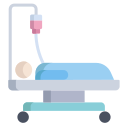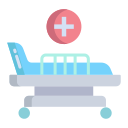If you have symptoms of acute respiratory infection, you should practice cough etiquette (maintain distance, cover cough and sneezes with disposable tissues or clothing and wash hands).
- - Avoid close contact with people suffering from acute respiratory infections
- - Wash hands frequently, especially if there is a direct contact with ill people or exposure to their environment
- - Avoid close contact with live or dead farm and wild animals
- - If you are visiting a live animal market, a wet market or any animal product market, practice general hygiene like regular hand washing with soap and potable water after touching animals and animal products.
- - Avoid touching eyes, nose or mouth with hands and avoid any contact with sick animals or spoiled animal products.
- - Avoid consuming raw or undercooked animal products and handle raw meat and milk with care.












